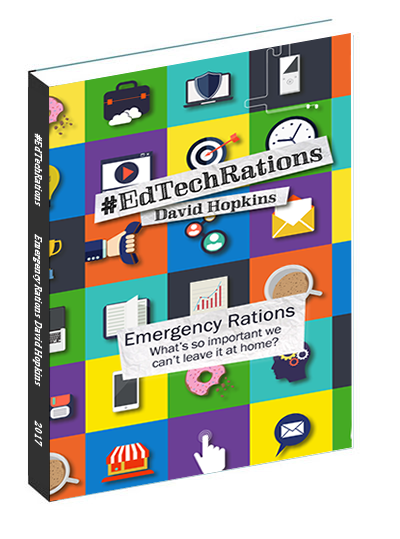Distraction
My last post was all about the ways in which familiarity can bring a sense of consistency to not only delivering online learning content, but also designing and developing it. This time I want to look at the way in which distraction can prevent the well designed and impeccably delivered learning materials.
Whether you work in an office or, like me at the moment, at home, we all look to manage our working environment. Working in an office, small or large, will often mean managing how people interact with you when you’re trying to concentrate, preventing the creep of office chatter or ‘work’ noise.
Personally, if I want to focus I use music and, when in an environment with others, headphones. Depending on the quality of your headphones you may find you provide more distraction for co-workers as your headphones leak sound. A while ago I bought a set of AKG Y50BT headphones … not noise-cancelling, I can’t afford a decent set of those, but these on-ear ‘phones are really good at reducing noise ingress. The only downside of these is that my ears get hot.
Working from home means I don’t have to wear the ‘phones unless I have to. I can have music playing in my study or, if I work in the kitchen or conservatory, from the laptop or Amazon Echo (yes, I got one). Obviously working from home is great, but that’s once the kids have gone to school. Come mid-late afternoon, they’re back. I don’t want to impact my home life so back I go to the ‘study’ (smallest bedroom, until I get the garden office built!), close the door and try and let the house carry on as normal.
You can’t really do that in a shared office either, can you? Some people I’ve spoken with while writing this have a dedicated ‘quiet’ room where one or more can go to work in ‘silence’, or rather without interruption. Now that’s a good idea!
Making sure those around us know when we’re available to chat or when we want to focus and not be disturbed. I’ve worked with people who’ve had different techniques for this; one had a sign they’d hang on the back of their chair when they’re not to be disturbed. One manager used to wear a hat when he wanted to focus and be left alone. Another used to put his headphones on.
How do you work or learn in a distracted environment? Click To TweetAll this is great for me and how I set my working environment up, but what about for those of us who are also learners? What about for learners who are not as experienced or comfortable in sitting down at a computer or computing device to ‘learn’? What does distraction mean to them?
Firstly we, the learning design/development community, have to recognise that no matter how hard we try we will never be the most important thing in the learner’s life – family, friends, work, fitness, health, etc. will always exert a pull on their time and commitment. We have to respect that and enable the learning to fit around their existing lives. Even those learners who are fully committed to the course(s) and spend as long as possible, or even longer than we recommend, need to be able to learn when it suits them. Learners will often be doing it after a full day of work, family, etc. No everyone is at their mental best at this time either, so we need to make the learning as ‘easy’ to access as possible (see my post ‘familiarity‘ for more on this).
I’ve often seen, in online courses, a timer at the beginning of a section – “Time to complete: 0.5hrs”. There are often timescales ‘imposed’ on the course itself, most MOOCs will say something like “5 hrs per week“. This has often raised questions about whether we ought to be this prescriptive about how long the ‘learning’ should take, after all people read or learn at different rates.
When you create your online course, do you help the learner by explaining how they can set up their time and environment to prevent distraction? Would the (novice) learner benefit from our experience if we told them “find somewhere quiet, turn the TV off, close down social media tabs, don’t look at your phone notifications, switch the phone to silent, etc.”. But what about those people who focus more when there is noise (not distraction, but noise .. music, family, TV, cafe, etc.). I know it works for me. Sometimes.
Distraction doesn’t mean isolation or quiet. Something distracting to me might be essential for you to focus and relax. The thing here, for me, is that we have had the luxury to find out these things for ourselves. For our learners, what can we do to help them find their ideal ‘learning environment’? If your course has an on-boarding process or initiation stage then use it to highlight what is expected of them, how much time (and how often) they ought to spend on the course and it’s readings.
Provide as much information for the learners, without overloading them, to make the decisions for themselves. And try it out.


















